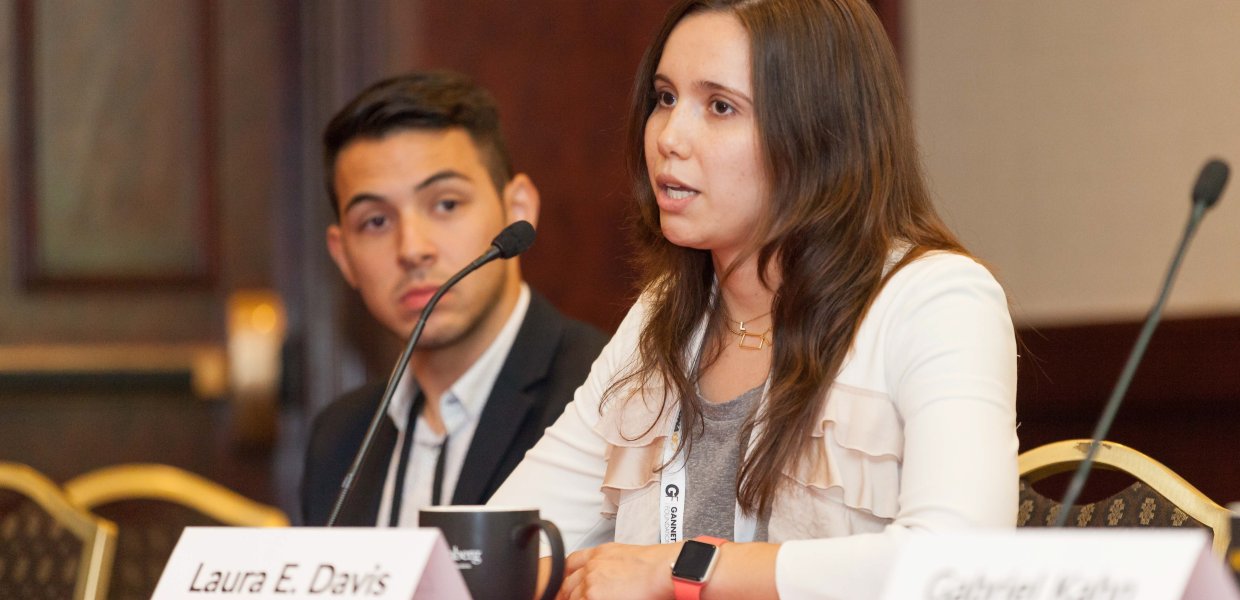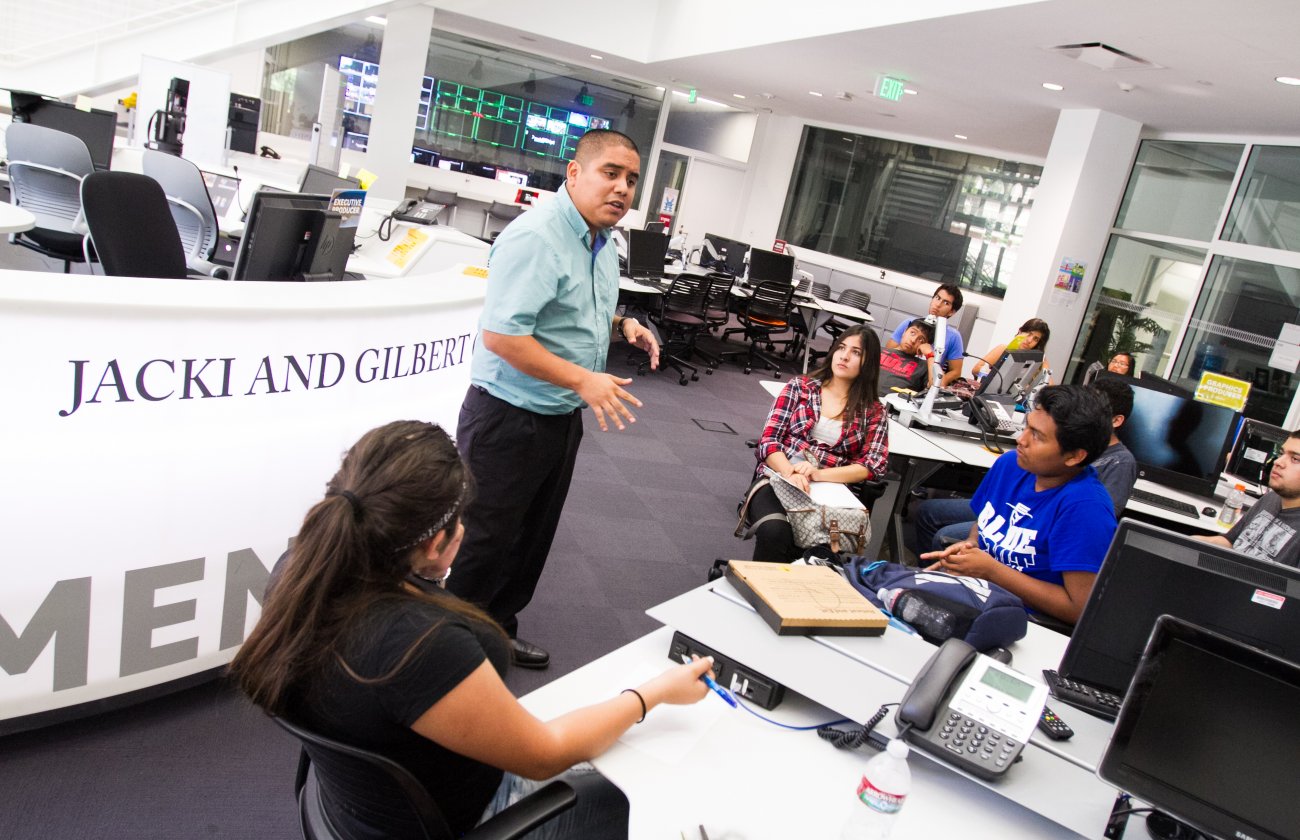Inside the classrooms at USC Annenberg, students are the ones typically tasked with answering the hard hitting questions. "Five Minutes with..." turns the table on faculty members to ask them the questions we've been itching to know the answers to.
Formerly a mobile news editor at Buzzfeed, professor Laura E. Davis has joined USC Annenberg as a full-time faculty member this month.
Having been ahead of the curve in seeing the value of online and mobile news, Davis is perfectly positioned to introduce students to the ins and outs of covering the news on mobile devices. Davis will be part of a group of faculty teaching Journalism Capstone Project (JOUR 598), where she will act as a digital advisor to graduate students. She will also be sharing her expertise on news for the web by teaching Web Journalism and Editorial Site Management (JOUR 533) in the fall semester.
How do you plan on preparing your students for the changing digital landscape?
For me, it’s just introducing more students to where we are in the industry right now and all the possibilities that digital provides everyone really, but especially students. I’ve had a little time off since I left Buzzfeed, and I’ve been thinking a lot about where we are with storytelling and how the trends in the industry really speak to a lot of opportunities for students. I think students want to learn how to write and produce amazing broadcast and all those things you need to know, but the way that digital storytelling is going right now, students really have an opportunity to lead on that and try whole new ways on Snapchat or online, storytelling in ways that we have not even thought of yet. I really just think students can take the lead on that and that’s super exciting.
What part of becoming a full-time faculty member are you most excited about?
I just want to tap into the creativity of students and sort of give them the tools to say, “Back in the day, you really had to learn this base set of skills, like you had to learn to write like New Yorkers write. Now, you can do that if you want, but that’s not the only thing you can do. You can do a ton of different things and you can make up your own path.” I’m really excited to work with students in that way.
Where do you see mobile news in five years time?
It’s very hard to make those types of five years predictions, because I think that so much of my career has been “where do you see yourself in five years?” and I’ve never had a good answer to that question. Frankly, it became a good thing because the landscapes change so much in five years. Jobs that don’t exist are going to exist in five years. We don’t really know what those are, but as far as mobile news goes, I think we’re going see it continue to take over. Right now, there’s desktop and mobile. Soon, it’s mostly going to be mobile. You’re still going to have people at work on their desktops, but mobile news is going to continue to dominate. The thing that you’re really seeing is mobile news conception isn’t really on news websites, it’s on social apps and chat apps. I think you’re going to continue to see that trend, and that’s where the new ways of storytelling really come in. The article format is based on an old-fashioned, totally different medium. It’s based on the newspaper, on something printed, and we are starting to abandon that format. You’re going to see those new formats take shape on mobile.
What is the one piece of advice you would give to USC Annenberg students looking to start a career in journalism?
Keep an open mind. I think that that is what has gotten me where I am, just because I wasn’t afraid to take on new challenges, try things that weren’t really in the mainstream yet. Especially when I graduated, there were prescribed tasks to how to become a journalist, and I never really bought into the fact that that was the only way to be a real journalist. I tried a bunch of new things when they came my way and that’s how I’ve built my career. It’s by trying social and trying mobile when a lot of newsrooms looked down on those jobs, like “I’m a homepage editor, I’m better than that” or “I write stories, I’m better than that.” I was not too good for it, so it worked out well for me. I would just say keep an open mind, that’s really important.
If you could go back in time and redo your college years at USC, what class would you take and why?
I think I have a lame answer, which is to say I double majored in creative writing, and that was cool don’t get me wrong, but there’s part of me that wishes I had double majored in history or political science, so I guess I’d say a history or political science class.









